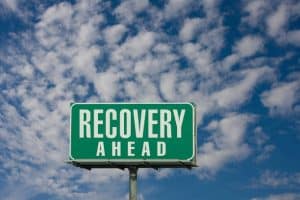The Effects of Drug Addiction Rehabilitation Programs?
In drug addiction rehabilitation programs, you gain essential tools to understand and change harmful behaviors. These programs explore the root causes of addiction, helping you identify triggers and develop healthier coping mechanisms. By challenging negative thought patterns and regulating emotions, you build resilience against cravings. The evaluation of success rates and personalized treatment plans enhance your recovery journey. A personalized approach, integrating cognitive behavioral techniques and supportive aftercare, results in lasting transformations. The effects go beyond mere sobriety, fostering profound changes in behaviors and long-term recovery.
Benefits of Behavioral Therapies
Behavioral therapies offer individuals undergoing addiction rehabilitation programs essential tools for understanding and changing harmful patterns of behavior. By actively participating in these therapies, you can explore the root causes of your addiction, identify triggers, and develop healthier coping mechanisms. Through techniques like cognitive-behavioral therapy (CBT) and dialectical behavior therapy (DBT), you will learn to challenge negative thought patterns, regulate emotions, and build resilience against cravings.
In these sessions, you will work closely with trained therapists to set achievable goals, monitor progress, and address any setbacks. By focusing on your behaviors and thought processes, behavioral therapies empower you to take control of your actions and make positive changes in your life. Through consistent practice and reinforcement, you can develop new habits that support your recovery journey and enhance your overall well-being.
Effectiveness in Addiction Recovery
In the journey of addiction recovery, evaluating the effectiveness of treatment programs becomes essential for ensuring lasting sobriety. When considering the effectiveness of addiction recovery programs, it is vital to look at factors such as success rates, patient satisfaction, relapse prevention strategies, and long-term support. Programs that offer evidence-based therapies, personalized treatment plans, and holistic care tend to yield better results in helping individuals achieve and maintain sobriety. Effective addiction recovery programs often involve a combination of behavioral therapies, medical interventions, counseling, and aftercare support to address the physical, emotional, and psychological aspects of addiction.
Personalised Approach for Lasting Results
To achieve lasting results in addiction recovery, the key lies in implementing a personalized approach tailored to individual needs and circumstances. Personalisation in addiction rehabilitation programs involves understanding your unique struggles, triggers, and goals to create a treatment plan that resonates with you. By customising therapy modalities, counseling sessions, and support networks to address your specific challenges, the likelihood of sustained recovery increases greatly.
When interventions are personalised, they directly target the root causes of your addiction, making the treatment more effective and relevant to your journey. This tailored approach ensures that you receive the necessary tools and strategies to navigate potential setbacks and triggers outside the treatment environment. Additionally, personalized programs foster a sense of ownership and empowerment in your recovery process, reinforcing your commitment to long-term sobriety.
Integrating Cognitive Behavioral Techniques
By tailoring therapy modalities and counseling sessions to address your specific challenges, integrating cognitive behavioral techniques can greatly enhance the effectiveness of personalized addiction recovery programs. Cognitive Behavioral Therapy (CBT) focuses on identifying and changing negative thought patterns and behaviors that contribute to addiction. By working with a therapist to challenge and modify these patterns, you can develop healthier coping mechanisms and responses to triggers, reducing the risk of relapse.
CBT also helps you recognize and manage cravings, develop strategies to avoid high-risk situations and improve problem-solving skills. Through this approach, you can gain a better understanding of your addiction, learn to replace destructive habits with positive ones and build resilience in facing challenges without turning to substances.
Additionally, integrating cognitive behavioral techniques into your personalized program can provide you with practical tools to navigate real-world situations, enhance self-awareness, and foster positive changes in your life. By actively engaging in CBT sessions and applying the skills learned, you can empower yourself to overcome addiction and maintain lasting sobriety.
Supportive Aftercare for Sustained Sobriety
Supporting sustained sobriety through structured aftercare programs is essential for maintaining long-term recovery from addiction. After completing a drug addiction rehabilitation program, the journey towards sobriety continues with aftercare support. These programs offer ongoing assistance, guidance, and resources to help you navigate the challenges of staying sober. Through regular attendance at support group sessions, counseling, and other aftercare activities, you can strengthen your commitment to sobriety and build a network of individuals who understand your struggles. The structured nature of aftercare programs provides a framework for accountability and encouragement, helping you stay focused on your recovery goals. By participating in aftercare, you can learn valuable coping skills, receive feedback on your progress, and address any obstacles that may arise in your journey toward sustained sobriety. Remember, aftercare is not just about completing a program; it’s about investing in your long-term well-being and embracing a life free from addiction.
What Are the Specialised Detox Methods Offered at ARCA Jhb?
At ARCA JHB, you’ll experience specialized detox methods tailored to your needs. Medical professionals lead advanced detox techniques, ensuring a safe and effective process. Personalized care at ARCA JHB supports your journey to recovery.
How Does ARCA JHB Ensure Confidentiality and Privacy During Treatment?
During treatment at ARCA JHB, your confidentiality and privacy are safeguarded through strict protocols, secure facilities, and professional staff trained to respect your privacy rights. Your journey to recovery is supported with the utmost discretion.
Are Family Members Involved in the Personalized Treatment Plans at ARCA Jhb?
Family members are actively included in personalized treatment plans at ARCA JHB. They contribute to a supportive environment during individual counseling sessions and engage in weekly support group sessions post-treatment. Their involvement enhances the overall rehabilitation process.
Can Patients at ARCA JHB Access Alternative Therapies Like Art or Music Therapy?
Yes, patients at ARCA JHB can access alternative therapies like art or music therapy. These therapeutic options complement the holistic treatment approach, offering a creative outlet for expression and aiding in the recovery process.
What Resources Does ARCA JHB Provide for Relapse Prevention After Treatment?
For relapse prevention after treatment, ARCA JHB offers extensive resources like weekly support group sessions, aftercare programs, and free aftercare group sessions for a year post-treatment. These resources aim to support your long-term sobriety journey effectively.
You can transform your life with ARCA JHB’s drug addiction rehabilitation programs. With personalized care, advanced detox methods, and a supportive community, you can break free from substance abuse and achieve lasting wellness. Behavioral therapies, like CBT and DBT, are effective in guiding you towards sobriety. Take the first step towards a healthier, addiction-free future and join us at ARCA JHB today.



